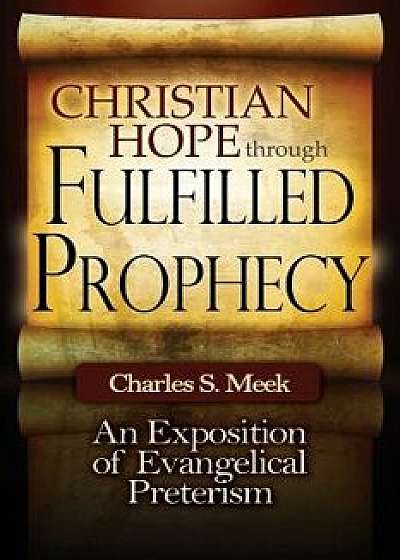
Christian Hope Through Fulfilled Prophecy: An Exposition of Evangelical Preterism, Paperback/Charles S. Meek
Descriere
I love the church. But I began having suspicions about what is taught in most churches about Bible prophecy. As documented in this book, the most persistent challenge by skeptics hostile to the Bible and Christianity is that Jesus did not return when He promised--within the lifetimes of his followers. Indeed, there are over 100 passages in the New Testament clearly declaring: (1) that the writers of the New Testament themselves were in the "last days," and (2) that Jesus would return while some of his disciples were still alive, in fulfillment of all that had been prophesied. Were Jesus and the New Testament writers wrong? Christians too often gloss over the important prophetic time-statements. As documented in this book, otherwise reputable denominations are willfully blind on eschatology. But if Jesus and the writers of the New Testament were wrong, they could not have been inspired, and Jesus Himself was a false prophet. This critical problem must be addressed by the church. Could the "last days" be referring to the final days of the Old Covenant order rather than to the end of the physical universe? Was the "time of the end" when Jerusalem and the temple were destroyed in AD 70--the date when the ancient covenantal system of temple sacrifices for sin ended forever? Could many modern Christians have misunderstood what Jesus meant by his Parousia (his "Second Coming") --that it was to be a divine, but non-visible "presence in judgment" against the Jews in AD 70--similar to God's coming in judgment against the Jews or their enemies on multiple occasions in the Old Testament? Could the King James Version of the Bible have misled English speaking Christians for 400 years about certain critical details? This book explores these possibilities, which if true, resolve the challenges to the accuracy of the Bible. I examine the growing view of Bible prophecy called "evangelical preterism" or "covenant eschatology." This is the view that most, if not all prophecy has been f





